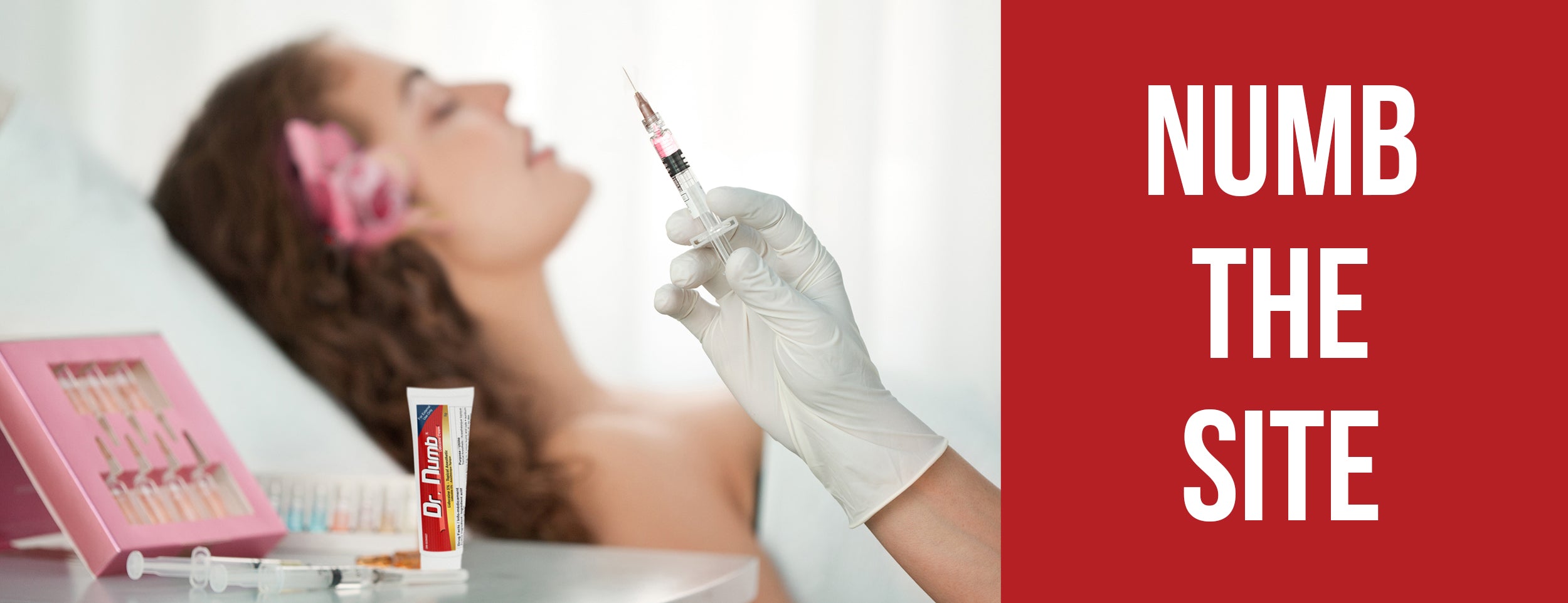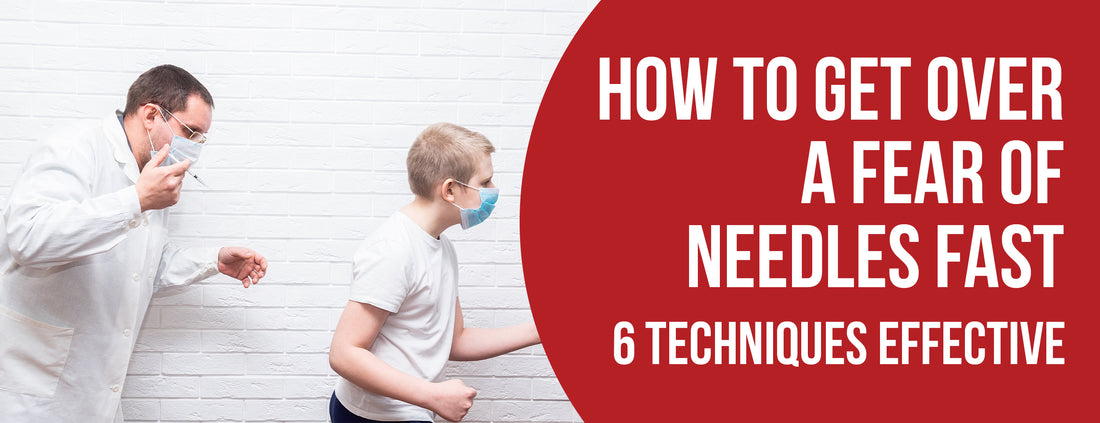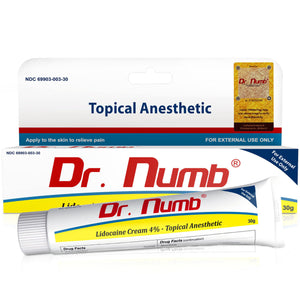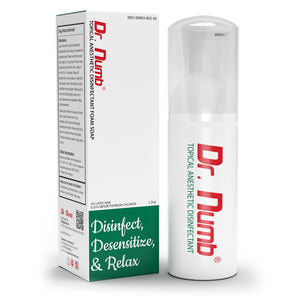Most people shiver at the thought of needles. Your fear may have kept you from getting a flu shot for years or prevented you from getting critical medical procedures. According to the Anxiety and Depression Association of America, approximately 10% of people fear needles.
Listen to calming music, watch something on your phone, squeeze a stress ball, chat up the person giving you the shot, or take blood. Take your eyes off it. It is pointless to watch what is going on. It will take a little while for the person handling the needle to finish.
In this blog post, you will discover practical ways to overcome your fear of needles, allowing you to care for your health without undue stress. So, let's get started.
How to Get Over a Fear of Needles Fast: 6 Techniques

With the proper techniques and strategies, overcoming this fear and making the experience much more manageable is possible. We will explore different ways of overcoming needle phobia.
Look Away
Looking away from needles is the easiest and most effective way to reduce anxiety. This involves avoiding eye contact with the hand during the actual procedure. The following tips can help make this option more effective:
- Focus on your breath or an object in the room to shift your focus away from the needle.
- Ask a trusted friend or family member to be present during the procedure to provide a comforting distraction.
- Inform the person administering the needle about your fear and ask them to minimize your view of the needle.
- Listen to calming music or concentrate on a visualization exercise to distance yourself from the experience.
If looking away feels uncomfortable, consider trying one of the alternative techniques outlined below.

Use Relaxation Techniques
Relaxation techniques can be incredibly helpful in reducing anxiety. These methods regulate your nervous system and decrease the physical symptoms of anxiety. Some of the most effective relaxation techniques for needle phobia include:
- Deep breathing exercises: Inhaling deeply and exhaling slowly can help you remain calm and centered.
- Progressive muscle relaxation: This technique involves tensing and releasing each muscle group to promote relaxation.
- Yoga or meditation: These practices can help you to calm your mind and center your focus.
- Listening to calming music: soothing sounds can help lower anxiety levels.
Find a Role Model
A role model can provide a powerful source of inspiration to people who fear needles. By finding someone who has conquered their fears of hands, you can envision how you can do the same. To find a role model, follow these tips:
- Search online forums or support groups for individuals who have overcome their fear of needles.
- Ask your healthcare provider for recommendations for patients who have overcome needle phobia.
- Look at celebrities or public figures who have spoken about their needle phobias.
Numb The Site

A needle procedure can be made more comfortable by using numbing techniques. By reducing the physical pain associated with needles, you can also help to decrease your anxiety levels. Consider the following numbing methods:
- Topical anesthetic cream Dr. Numb or spray: This can be applied to the area before the needle procedure to help reduce pain.
- Cold or heat packs: Applying a cold or heat pack can help to numb the area and reduce physical discomfort.
- Pressure or vibration therapy: Gentle pressure or vibration can help desensitize the affected needle area.
Expose Yourself to Needles
Gradual exposure therapy is used to help individuals deal with their phobias by gradually exposing them to the source of fear. While this can initially be uncomfortable, it can help you overcome your needle phobia. Here's how to get started:
- Start by simply looking at pictures of needles, verging on to videos, and eventually, real-life scenarios.
- Bring someone you trust in your first real-life exposure to provide emotional support and encouragement.
- Take small steps with each exposure and challenge yourself to sit with any feelings of discomfort until they pass.
- Remind yourself of the benefits of overcoming your phobia to motivate yourself.

Reframe Your Thoughts
Our thoughts can significantly influence our emotions and actions. Reframing negative thoughts surrounding needles can reduce anxiety and overcome your phobia. Here are some techniques to try:
- Challenge negative thoughts: Question why you believe your negative thoughts and challenge their accuracy.
- Practice positive reframing: Focus on the positive aspects of the needle procedure and challenge yourself to think positively.
- Use visualization: Visualize yourself successfully navigating a needle procedure confidently and efficiently.
Tense Your Muscles
Physical distractions can help reduce anxiety levels surrounding needles. By tensing your muscles, you shift your body's focus away from the hand and towards the physical sensation within your body. Here's how to try it:
- Tighten a muscle group for a few seconds, then release.
- Repeat the process, moving from muscle to muscle group until you feel more relaxed.
- Focus on the physical sensations within your body to help distract from the needle procedure.
Conclusion
The fear of needles is a common phobia that affects many people, but it should not prevent them from receiving crucial medical care. You can quickly overcome your fear of needles by following the strategies outlined in this post.
There is a solution that can work for you, whether it is seeking professional help, practicing relaxation techniques, or focusing on the bigger picture. Don't let the fear of needles stop you from prioritizing your health and well-being the next time you need a shot or blood drawn.










![The Cost of Full Body Electrolysis: 4 Factors and 5 Costs [with 3 Alternatives]](http://drnumb.com/cdn/shop/articles/How_Much_Is_Full_Body_Electrolysis_4_Factors_Cost_Efficiency.jpg?v=1713417391)
![The 6 factors that cause scarring [7 tips to prevent and manage it]](http://drnumb.com/cdn/shop/articles/Does_Electrolysis_Cause_Scarring__5_Reasons_7_Prevention_Tips.jpg?v=1713357293)


